Your Legal Options after Vibrio Vulnificus Food Poisoning in Florida
In recent years, the growing concern surrounding foodborne illnesses has prompted a heightened awareness of public health and safety. This concern has led to an upsurge in lawsuits involving pathogens like Vibrio vulnificus. Vibrio vulnificus is a bacterium commonly found in warm coastal waters, which can allow it to thrive in Florida’s natural environments.
Our law firm won a $6.7 million food poisoning lawsuit for a family who were served raw oysters contaminated with Vibrio vulnificus at a restaurant in Florida. Call (813) 273-0017 for a free consultation. Our attorneys will evaluate your case and offer advice for your situation.
Understanding Vibrio Vulnificus
Vibrio vulnificus, a naturally occurring bacterium, thrives in warm seawater environments and poses a severe threat if ingested or if it enters open wounds. Symptoms range from fever, chills, vomiting, and diarrhea to more severe complications such as bloodstream infections, sepsis, and, tragically, even death.
Vibrio infections can be contracted through wounds as well as by eating raw or improperly cooked seafood. Some people have much worse reactions to infection than others. People who take Immunosuppressants, medicine that lowers the body’s ability to fight disease, are at a much higher risk for a fatal infection.

Reduce the Risk of Vibrio Infection
There are several ways to reduce your chances of contracting a Vibrio infection through a wound:
- If you have a recent wound you should consider staying away from the beach or any other saltwater or brackish water if it can be avoided. Should this be unavoidable be sure to cover your wound with a waterproof bandage.
- One thing to consider in Tampa is the storm surges during hurricanes which can lead to flooding and wading brackish and saltwater.
- Maintain good hygiene i.e., washing the area you may have a wound daily, especially if you have come in contact with saltwater, brackish water, or raw seafood.
- Keep shellfish cold after harvesting. Harvest shellfish as soon as possible and do not harvest shellfish if they have been exposed to the sun for more than an hour.
A Vibrio infection can be treated with medicine however in severe cases of necrosis (dead tissue under the skin) amputation may be required. The infection can be detected in the individual’s stool, blood cultures, or wound(s). There is no evidence of person-to-person transmission of Vibrio vulnificus. https://www.cdc.gov/vibrio/wounds.html https://doh.wa.gov/community-and-environment/shellfish/recreational-shellfish/illnesses/vibriosis
Transmission and the Role of Shellfish
A major pathway for Vibrio vulnificus infection is through the consumption of contaminated seafood, with raw or undercooked shellfish, like oysters, being of particular concern. Due to their filtration mechanism, shellfish can accumulate Vibrio bacteria from their environment. When these shellfish are ingested raw or undercooked, individuals are at risk of bacterial exposure and the consequent development of infections. The bacteria does not change the appearance or smell of the oyster nor its flavor which can make it even harder to detect before the symptoms settle in. https://www.cdc.gov/vibrio/vibrio-oysters.html
Guillain-Barré Syndrome and Vibrio Vulnificus
One alarming consequence of Vibrio vulnificus infection is the potential development of Guillain-Barré Syndrome (GBS). GBS is a rare neurological disorder where the body’s immune system attacks the peripheral nervous system, leading to muscle weakness, paralysis, and, in severe cases, respiratory failure. While GBS is conventionally associated with certain viral infections, recent research has shed light on a potential link between Vibrio vulnificus infection and the onset of GBS. https://www.sciencedirect.com/science/article/pii/S2665910719300040
Presence of Vibrio Vulnificus in Tampa and Florida
Florida’s warm coastal waters are an optimal habitat for Vibrio vulnificus, making it a pertinent concern for the state, particularly regions such as Tampa with a thriving seafood culture. This heightened risk underscores the need for strict adherence to proper handling, cooking, and hygiene practices, particularly when dealing with raw or undercooked shellfish. In 2023 Florida already has 26 reported cases of Vibrio vulnificus 5 of which resulted in death. As mentioned before the bacterium prefers warm coastal waters but requires salt to survive longer making Florida the perfect climate for it to thrive. https://health.wusf.usf.edu/health-news-florida/2023-08-22/five-people-in-the-tampa-region-have-died-from-flesh-eating-vibrio-in-2023
Determining Responsibility for Transmission
When Vibrio infection occurs due to the negligence of food establishments or suppliers, any business in the food supply chain may be liable. The evidence will be examined to determine which businesses mishandled or improperly stored seafood, leading to bacterial growth and transmission. Any negligent party may be held accountable for the illnesses that resulted from their mistakes. This includes every business in the food supply chain, including seafood processors, distributors, and restaurants.
Legal Recourse: Pursuing Negligence Claims
When a Vibrio vulnificus infection is caused by someone else’s negligence, the victim may be entitled to legal compensation for medical expenses, emotional distress, lost wages, and other damages related to the illness.
Restaurants can be held liable for foodborne illnesses caused by employees improperly storing or preparing food. Even if the business itself is not guilty of negligence, vicarious liability means that employers can be held accountable for an employee’s actions. Examples of negligence include:
- Failing to establish policies for safely handling food.
- Violating federal or state health and safety regulations.
- Failing to maintain proper temperatures and other conditions when storing food.
- Failing to maintain good hygiene (washing hands) and kitchen cleanliness.
- Failing to cook food to a safe temperature or other safety mistakes when preparing food. https://www.forbes.com/advisor/legal/personal-injury/can-you-sue-food-poisoning/#proving_your_case_in_a_food_poisoning_claim_section
The Role of a Foodborne Illness Attorney
Addressing the intricate legal aspects of foodborne illness cases, including those involving Vibrio vulnificus, necessitates the expertise of seasoned attorneys. A foodborne illness attorney, particularly one well-versed in Florida’s legal landscape, can offer invaluable guidance, helping victims understand their rights, build a compelling case, and obtain compensation for their pain and suffering.
Swope, Rodante P.A.’s $6.7 Million Food Poisoning Verdict
2018 marked a significant milestone for Swope, Rodante P.A. as we secured a groundbreaking victory in a food poisoning case involving raw oysters contaminated with Vibrio vulnificus. The firm won an impressive $6.7 million jury verdict, showcasing their dedication to justice and their ability to secure substantial compensation for victims of negligence. The unprecedented case was covered by news outlets around the world, including the New York Times: https://nypost.com/2018/06/07/couple-awarded-6-7-million-for-food-poisoning-from-raw-oysters/ and Tampa Bay Times: https://www.tampabay.com/news/courts/civil/Oysters-suspected-as-jury-awards-couple-6-7-million-in-Tampa-food-poisoning_168882920/.
Call for a Free Legal Consultation
At Swope, Rodante P.A., we understand the physical, emotional, and financial toll inflicted by Vibrio vulnificus infections and other foodborne illnesses. Call (813) 273-0017 for a free consultation if you believe someone else may be at fault for your illness. Our team will evaluate your case and provide advice for your situation.
Conclusion
Vibrio vulnificus infections, particularly those transmitted through food, pose a significant threat to public health, especially in Florida’s coastal regions. With our wealth of experience and unwavering commitment to justice, Swope, Rodante P.A. is here to help. If you or your loved ones have suffered from Vibrio vulnificus or other foodborne illnesses, call for a free consultation and take your first step towards justice.














